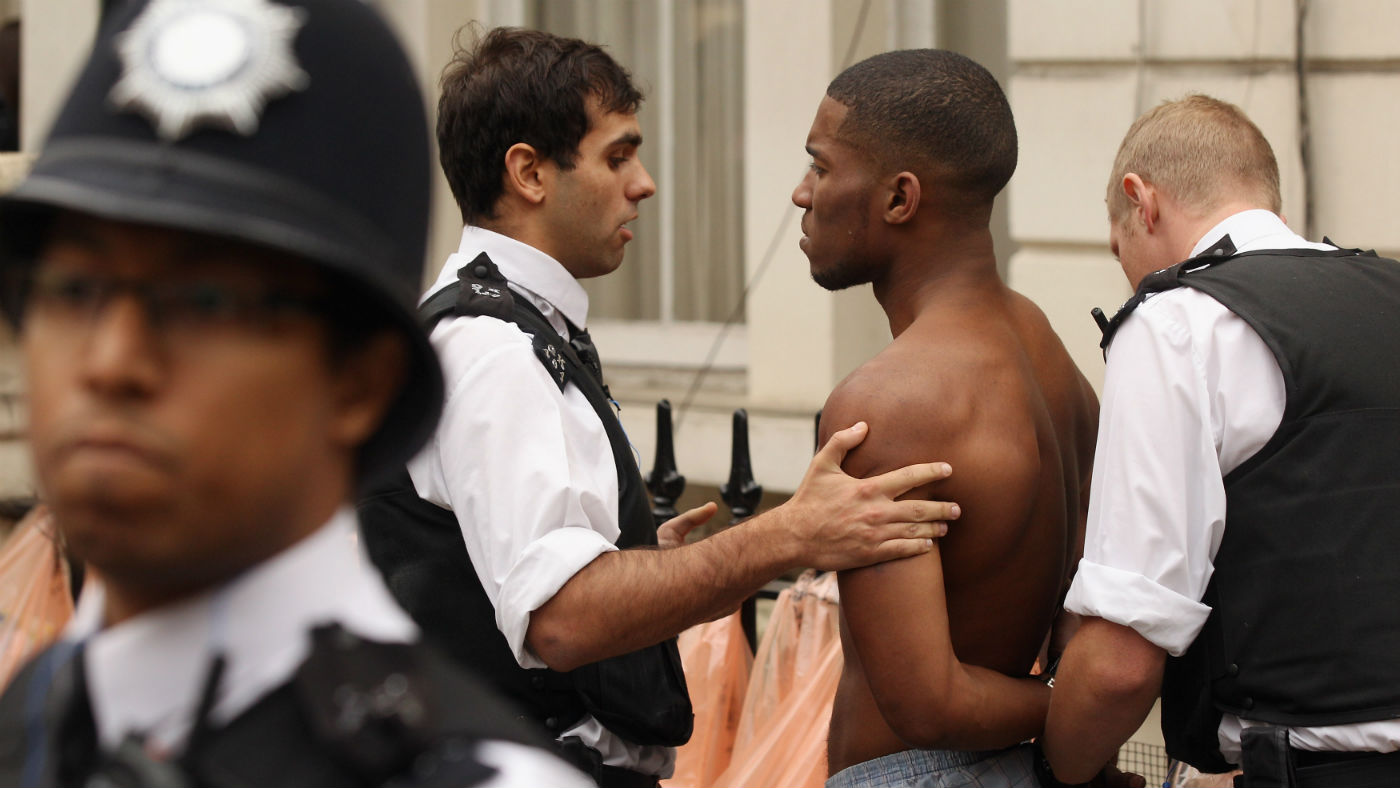Is drop in stop-and-search fuelling a rise in knife crime?
Changes to the law criticised for spike in violent crime and homicides

A free daily email with the biggest news stories of the day – and the best features from TheWeek.com
You are now subscribed
Your newsletter sign-up was successful
The sharp rise in knife crime over the past twelve months has been blamed on a drop in the number of stop-and-searches being carried out by police.
Figures from the Office for National Statistics (ONS) reveal there were 40,000 offences involving a knife in 2017, up nearly a quarter on the previous year.
A spate of knife murders - especially in London - in recent months, “has led to calls for a re-think on the approach to the controversial stop and search powers given to the police”, says The Daily Telegraph.
The Week
Escape your echo chamber. Get the facts behind the news, plus analysis from multiple perspectives.

Sign up for The Week's Free Newsletters
From our morning news briefing to a weekly Good News Newsletter, get the best of The Week delivered directly to your inbox.
From our morning news briefing to a weekly Good News Newsletter, get the best of The Week delivered directly to your inbox.
Criticism that the practice disproportionately discriminates against young black men led to changes in the law in 2014 which meant police officers could stop people only if they had “reasonable grounds” to suspect they were carrying weapons, illegal drugs or stolen property.
According to police figures, this has led to a drop of 21% in the number of stop-and-searches carried out in England and Wales between 2016 and 2017. This coincided with a 26% rise in the number of homicides involving a bladed weapon over the same period.
The latest figures have been seized upon by politicians from all sides. Foreign Secretary Boris Johnson has urged the Government to be tougher on knife crime and called for more stop-and-searches, while his successor as London Mayor, Sadiq Khan, has laid the blame squarely on cuts to police budgets brought in by the Government.
However, The Washington Post says that analysis of data from New York, which has cut back stop-and-searches even more drastically, suggests that “the number of stop-and-frisks isn't related to the crime rate”.
A free daily email with the biggest news stories of the day – and the best features from TheWeek.com